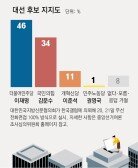Rice Production Expansion Policy to Be Discontinued
Rice Production Expansion Policy to Be Discontinued
Posted September. 05, 2001 08:32,
The government has unveiled a plan to abandon its long-standing rice production expansion policy and beginning next year will freeze its purchasing price on rice harvests.
As part of the plan, by the time the World Trade Organization`s (WTO) rice rounds take place in 2004, the government will have discontinued its practice of making congressionally determined purchases in which rice prices and amount are voted on by the National Assembly. Instead, the rice policy will be more of a `public reserves system` in which the government will only purchase at market prices the rice levels deemed to be necessary for national security purposes.
These measures were introduced in the September 4 announcement made by the Ministry of Agriculture and Forestry (MOAF) titled, ``Comprehensive Development Plan for the Rice Industry in Preparation for the 2004 Rice Round.``
Starting next year, the Ministry of Agriculture will discontinue its rice production expansion policy of directly intervening in farming practices such as promoting the planting of rice in paddies that are being rested and in fields where other crops are planted. The Ministry`s new focus will be on deciding optimal production targets and playing more of an administrative guidance role.
The Ministry also decided to adopt a quality-oriented policy that supports the development of new grain types with higher quality rice and shifts the rice plant supply system toward distributing higher quality rice stalks.
Rice plants producing low rice quality will be taken off of the planned grain purchase list and excluded from purchases made at rice treatment centers. In addition, the grain grading scale will be revised so that higher quality rice commands better prices.
The MOAF also plans to stabilize rice prices to a more competitive level with international prices by 2004. The Ministry will also evaluate the rice tariff measures in anticipation for greater market opening pressure by exporting countries in the upcoming rice round.
Beginning in 2003, the government will implement a `Rice Cultivation Stabilization Program` that directly subsidizes farmers. In the event that on-farm prices are 3 percent below the past three-year average prices, the government will provide a subsidy amounting to about 70 percent of the price differential.
As part of this plan, the government plans to revise its grain management policy and set the optimal level of public rice reserves at 7 million sacks based on national food security considerations, and will maintain reserves between 4 million and 10 million sacks. This amount will also include the rice bought at market price at producer associations such as Nonghyup.
Assistant Deputy Minister of Agriculture Ahn Jong-Woon stated, ``Following the results of the Uruguay Round discussions, the mandatory import levels of rice will be expanded to 1.43 million sacks of rice by 2004, which represents 4 percent of the domestic rice consumption levels. As a result, we really have no choice but to revise our grain policy.`` He also added, ``Only Korea and the Philippines are currently receiving the grace period on rice tariffs; consequently, we will also have to evaluate our re-negotiation plan to cover the tariff measure.``
Kim Sang-Chul sckim007@donga.com






![[사설]‘국민 통합’ 이룬다며 ‘사회갈등 압축판’ 보여준 후보 TV토론](https://dimg.donga.com/c/138/175/90/1/wps/NEWS/IMAGE/2025/05/23/131673253.1.jpg)
